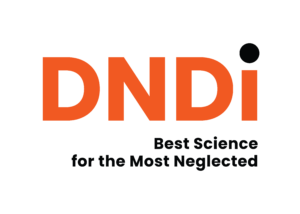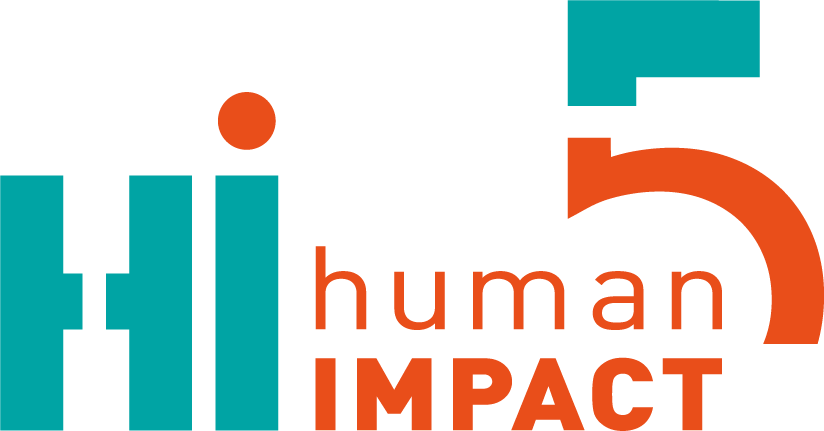
Consensus Statement























Building back better: towards a gender-responsive international instrument for pandemic prevention, preparedness, and response
We, a coalition of civil society organizations and academic and research institutions committed to gender equality and women’s rights, call on Member States to commit to gender equality and human rights in the new international instrument to maintain a firm focus on equitable prevention, preparedness and response that leaves no one behind.
The gender implications of COVID-19 pandemic have been reflected in multiple publications[i], including WHO’s Gender and COVID-19: Advocacy brief[ii] and COVID-19 and violence against women brief[iii]. Drawing attention to the harmful implications of gender-blind responses in previous outbreaks, such as HIV, Zika and Ebola, early in the pandemic we emphasize the need for gender responsive research for health equity and human rights in the context of COVID-19 pandemic in our call for action[iv]. In a civil society dialogue with WHO Director-General, Civil Society partners shared a set of expectations of WHO on achieving a gender transformative COVID-19 response.[v]
In the process of drafting and negotiating an international instrument on pandemic prevention, preparedness, and response, it is time to reflect on lessons learned and call attention to Member States’ commitments and obligations related to gender equality in various international instruments and regulations, requesting these to be reaffirmed, recognized and their importance emphasized in the new instrument.
More specifically, we wish to invite the newly constituted Intergovernmental Negotiating Body (INB) and Member States to, in addition to reiterating previously made commitments, incorporate the following substantive elements in the instrument:
Gender responsive evidence must guide pandemic preparedness, control, and response
- Collection and reporting of data disaggregated by sex and age, and by other social, economic, and structural determinants of health, must be ensured from the beginning to track patterns of transmission, mortality, morbidity, access to testing, treatment, hospitalization, vaccination, and protective measures, among others, to capture who is at risk and who is left behind.
- Research (quantitative and qualitative) needs to include population groups at risk (in a safe and respectful manner), including pregnant women and children, and be designed and conducted in a way to allow meaningful intersectional gender analysis to ensure equal safety, efficacy and effectiveness of diagnostic tools and therapeutic and preventive interventions. As such, all research must be reported in line with the Sex and Gender Equity in Research (SAGER) guidelines[vi] and publications made freely available.
- The impact of future pandemic response planning on social, economic, cultural, civil and political rights must be analyzed through an intersectional gender lens to understand and respond effectively to multiple dimensions of inequality[vii].
Strategies, policies, and response plans must be inclusive, equitable, account for gender dimensions and align with human rights standards
-
Member States must guarantee that policies and interventions, including recovery plans, are grounded in evidence that accounts for the significance of sex and gender and their intersection with other dimensions of inequality. Gendered social, economic, and human rights repercussions as well as other health impacts must be considered when developing mitigation strategies.
-
States must recognize that the right to adequate standards of physical and mental health should be addressing barriers and promoting access to health which includes understanding and appropriately responding to intersectional gender dimensions that further marginalize and discriminate against certain groups, including but not limited to people of diverse sexual orientation and gender identity, adolescents, sex workers, people who use drugs, people living with HIV, migrants and refugees, people with disability, people in prison, and older people, in particular older women.
-
Human rights-based responses to the crisis must be gender transformative, inclusive, equitable and universal to ensure that no one is left behind. Such responses must also ensure that health care is available, accessible, acceptable, and of good quality.
More specifically, in the new instrument, there must be explicit reference to:
- measures to prevent disruption of sexual and reproductive health services and to guarantee their access
- adequate investment by each State to prevent and respond to gender-based violence in a timely manner during emergencies and crisis
- the need for accountability mechanism for guaranteeing zero tolerance to sexual exploitation and abuse of power
- appropriate consideration of the gendered impact on the health workforce and health systems
Meaningful participation is key for a gender-responsive and human rights-based approach to any pandemic
- Meaningful participation of diverse groups of women’s organizations, LGBTQI+ groups and men’s organizations focusing on feminist approaches and gender equality from around the globe, through a transparent and inclusive process is imperative for an effective, acceptable, and successful pandemic preparedness, control, and response[viii]. This includes ensuring gender balance in governance bodies, expert taskforces or other decision-making bodies.
- Human rights including gender equality must guide any public health response, ensuring that any emergency measures — including states of emergency — are legal, proportionate, necessary, and non-discriminatory, have a specific focus and duration, consider the gender implications of any measures and take the least intrusive approach possible to protect public health, human rights, and the rule of law. The gender implications must be considered prior to the imposition of any rights limitations in public health or emergency measures.
- In 2021, a group of community, civil society and academic experts developed Ten Human Rights Principles for a Pandemic Treaty[ix]. These Principles are a useful starting point for advocacy to ensure the conformity of the proposed Instrument to international human rights law and standards.
More information
[i] Fit For Women Report – Women in Global Health – (PDF)
Delivered by Women, Led by Men – (PDF)
Pay Women Report – Women in Global Health Women in Global Health – (PDF)
Gender Equal Health Care Workforce Initiative – Women in Global Health – (PDF)
[ii] https://apps.who.int/iris/handle/10665/332080 – (PDF)
[iii] https://www.who.int/publications/i/item/WHO-SRH-20.04
[v] https://gendro.org/final-expectations – (PDF)
[vi] Sex and Gender Equity in Research: rationale for the SAGER guidelines and recommended use. Res Integr Peer Rev 1, 2 (2016) – (PDF)
[vii] https://unsdg.un.org/sites/default/files/2020-03/SG-Report-Socio-Economic-Impact-of-Covid19.pdf
[viii] States cannot negotiate a pandemic treaty alone – (PDF)
[ix] https://www.dropbox.com/s/s34vb3cpylit5fl/Pandemic%20Treaty%20HR%20Principles%2028%20Oct.pdf?dl=0 – (PDF)
Organizational endorsements
GENDRO
Harm Reduction International
Medicines for Malaria Venture
Concept Foundation
Gender Centre, Geneva Graduate Institute
Women in Global Health
Women in Global Health – Switzerland
HumanImpact5 HI5 Association
Global Action on Men’s Health
Giving Women
FIND
UNITE Global Parliamentarians Network to End Infectious Diseases
Equimundo
Drugs for Neglected Diseases initiative – DNDi
Alliance for Health Promotion
Swiss Alliance for Women’s Health
Women’s Age Lab – Women’s College Hospital
European Association of Science Editors
Spark Street Advisors
International Commission of Jurists
Shekinah Girls’ Empowerment and Protection Initiative
Euro Health Net
Global Health Technologies Coalition
Yarrow Global Consulting
African Women 4 Empowerment
Pan African Health Systems Network
IMEK Research Center in Marketing and Development
Women and Harm Reduction International Network
The Root – Association on Women‘s Welfare
Individual Signatories*
Shirin Heidari, GENDRO and Graduate Institute of International and Development Studies
Naomi Burke-Shyne, Executive Director, Harm Reduction International
Silvia Ferazzi, Senior Director, Advocacy, Medicines for Malaria Venture
Gabrielle Landry Chappius, Co-Founder, HumanImpact5 – HI5 Association and Women in Global Health Switzerland
Michaela Told, Co-Founder, HumanImpact5 – HI5 Association and Women in Global Health Switzerland
Metin Gülmezoglu, Executive Director, Concept Foundation
Elisabeth Prügl, Professor of International Relations, Co-Director, Gender Centre, Geneva Graduate Institute
Nicole Bourbonnais, Associate Professor of International History and Politics, Co-Director, Gender Centre, Geneva Graduate Institute
Claire Sommerville, Executive Director, Gender Centre, Geneva Graduate Institute
Bernard Kadasia, President, Alliance for Health Promotion and Board Member, GENDRO
Neha Singh, Associate Professor & co-Director of the Health in Humanitarian Crises Centre, London School of Hygiene and Tropical Medicine, UK
Peter Baker, Director, Global Action on Men’s Health
Atalanti Moquette, Founder, Giving Women
Sarah Simpson, EquiACT
Shelley Lees, Professor of Anthropology of Global Health, London School of Hygiene and Tropical Medicine, UK
Jeannette Wolfe, MD Professor of Emergency Medicine, UMass-Chan School of Medicine- Baystate
Julia Smith, Assistant Professor, Faculty of Health Sciences, Simon Fraser University
Gary Barker, Equimundo
Simone Carter, Lead Integrated Outbreak Anlaytics, UNICEF Public Health Emergencies
Sridhar Venkatapuram, International Resource Group for Global Health Justice (IRG-GHJ)
Nathaly Aya Pastrana, IMEK Research Center in Marketing & Development and Latin American Social Marketing Association (LAMSO)
Michelle Childs, Director Policy Advocacy, Drugs for Neglected Diseases initiative – DNDi
Abha Saxena, Independent Bioethics Advisor, Geneva
Roojin Habibi, Osgoode Hall Law School, York University
Michela Manna, Gender Specialist at WHO
Helen Prytherch, Swiss Tropical and Public Health Institute
Carmen Sant Fruchtman, Swiss Tropical and Public Health Institute
Paula Rochon, Womens Age Lab at Women’s College Hospital
Robin Mason, Women’s College Hospital
Paola De Castro, Director Scientific Communications, Italian National Institute of Health
Anna Maria Giammarioli, researcher, Italian National Institute of Health
Suerie Moon, Professor of Practice and Co-Director, Global Health Centre, Graduate Institute of International and Development Studies, Geneva
Mohammad Karamouzian, Brown University, RI, USA
Mira Johri, Professor, Université de Montréal, Québec, Canada
Nina Schwalbe, Adjunct Assistant Professor, Mailman School of Public Health, Columbia University
Roberta Masella, Centre for Gender Medicine, Italian National Institute of Health
Elena Ortona, Center for Gender Medicine, Italian National Institute of Health
Alessandra Carè, Director Center for Gender Medicine, Italian National Institute of Health
Maria Halkias, GENDRO Board Member
Tamara Mawhinney, Deputy Permanent Representative of the Permanent Mission of Canada to the United Nations in Geneva
*Disclaimer: The individual signatories are endorsing the principles presented in this Consensus Statement in their individual capacity and unless their organisations have endorsed the statement and lent their logo, these individuals do not necessarily represent the views, decisions, or policies of their respective organization.
Online Endorsees
| Name | Affiliation | |
|---|---|---|
ANNA | RUGGIERI | ISTITUTO SUPERIORE DI SANITA' , Rome - Italy |
Atta | Ul Haq | Youth Association for Development (YAD) Pakistan |
Marta | Lucas | CasaBleue Communications |
Heather | Doyle | UNDP |
Michaela | Told | HI5 Governance |
Nandini | Thapa | Community Member - Women who use drugs,India |
shanta | shrestha | Beyond Beijing Committee Nepal |
Eric | Nsengiyumva | BAPUD |
Aura | Roig | Metzineres |
Chris | Abuor | KUZA TRUST |
Els | Torreele | Visiting Fellow, UCL Institute for Innovation and Public Purpose |
Amna | Haider | Epicentre, Medecins Sans Frontieres |
LOEIZA | JACQ | GENDRO |
Montserrat | Rafel | General Director, Dianova International |
Dr. Bernadette | Ateghang-Awankem | Pan African Health Systems Network |
Clare | Wenham | London School of Economics and Political Science |
Paul | Landsbergis | SUNY Downstate School of Public Health, Brooklyn, NY, USA |
Brett | Archer | WHO |
Ellen | Rosskam | ER Global Consult |
Erica | Liebermann | Assistant Professor, University of Rhode Island |
Fadi | Alame | Unite |
Gisela | Scaglia | UNITE |
Akua Sena | Dansua | UNITE.NETWORK.ORG |
Stacie | Dunkle | WHO |
Marion | Muehlen | WHO |
Sara (Meg) | Davis | Graduate Institute Geneva |
Alexandra | Calmy | Geneva University Hospitals |
Jerome | Pfaffmann Zambruni | UNICEF |
Ruby | Siddiqui | UNICEF |
Emelie | Yonally Phillips | Epicentre |
Marie-Amelie | Degail | Senior Epidemiologist, Intergated Outbreak Analytics Lead, WHO Health Emergencies Programme |
Ziyoda | Kurbanova | Independent Researcher |
Patricia | Silveyra | Indiana University Bloomington |
Vivian | Ben-Abba | Shekinah Girls' Empowerment and Protection Initiative |
Monique | MIANDA | Reseau Femme er Développement REFED-Kasai-Oriental RD CONGO |
Wendy | Diedrich | International Humanitarian worker |
Judith | Bueno de Mesquita | Senior Lecturer and Co-Deputy Director of the Human Rights Centre, School of Law and Human Rights Centre, University of Essex |
For organisational endorsements please contact us directly at info@gendro.org to share your logo with us.